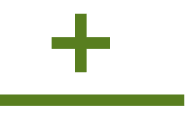Modular process skids are systems constructed in steel-reinforced, transportable frames. They represent a truly innovative and streamlined process that enables simultaneous on-site and off-site construction, improving project control, safety, and quality, reducing waste, and other benefits. These complex, mobile process systems can provide a practical solution to certain projects that require alternatives to traditional design and construction methods.
This article will discuss modular process skid design, highlighting the advantages of modular construction, key considerations, and important design guidelines.
What is a Modular Process Skid-Built System?
A modular process skid is essentially a portable, compact system that encapsulates an entire process system within a steel-reinforced frame, which increases durability and enables easy transport and installation. These skidded systems can operate independently or be combined to form larger systems or completely portable, modular process plants. Unlike traditional construction methods, which build structures from the ground up on a construction site, these modular systems are built within a controlled environment, such as a fabrication shop.
This process allows on-site construction and modular fabrication to occur simultaneously, providing several potential advantages, such as fewer onsite disruptions and less risk, waste, and time spent on construction. Modular systems have also been shown to help reduce a capital project's environmental footprint.
Advantages of Modular Process Skid Design
Modular skids can be a flexible and scalable solution for some projects, helping to overcome common challenges such as limited manpower and concerns about safety, quality, and efficiency. When properly matched to the right projects, they can help with faster project completion, ease of expansion, and fewer site disruptions.
We’ve listed below the potential advantages of modular process systems:
- Efficiency: Can reduce on-site construction time and costs.
- Flexibility: Easily expandable and modifiable to meet future process needs.
- Quality Control: Construction in a controlled environment can improve build quality.
- Reduced Risk: Can minimize safety hazards and environmental impact during construction.
- Speed: Enables parallel construction phases, helping to shorten project timelines.
Key Considerations in Modular Process Skid Design
The design and fabrication process of modular skid systems requires extensive front-end planning and material procurement. All design, procurement, integration, and logistical issues should be resolved before construction begins.
This approach ensures that materials and fabricated components are compatible, fit within the skidded system's frame, and are compatible with the systems they are intended to support. An early planning phase can help all stakeholders avoid costly modifications and delays during later stages of development in installation.
The following table summarizes important key aspects to consider below.
General Design Guidelines
To maximize accessibility, ensure integration with existing systems, and guarantee that the modular process system can adapt and change with your organization's operational needs over time without requiring significant rework. Modular process skid design requires careful layout planning and forward-thinking in the early phases of capital project planning.
Steps in the Design and Engineering Process
Several essential phases are involved in modular process skid design and engineering, ranging from preliminary phases and detailed design and engineering to procurement and fabrication, assembly, and commissioning. Each step should be carried out by a qualified Engineering, Procurement, and Construction (EPC) professional with significant design-build experience to ensure that the final product meets industry standards and operational requirements.
We’ve listed them below for further review.
Partner with H+M Modular for Custom-Fabricated Equipment, Modules, and Skids
While traditional construction is still the preferred method for many projects, some projects cannot proceed without incorporating modular solutions in part or entirely. Modular construction can help improve a capital project's time, cost, safety, and quality outcomes when applied to the right projects.
H+M Modular specializes in designing and fabricating truckable modules, providing exceptional capital project execution from concept to start-up for clients across the United States. From our engineering and fabrication headquarters in Houston, Texas, we can transport your project to wherever you are. For over three decades, we have provided end-to-end solutions for a wide range of project sizes within the energy, chemical, and terminals and logistics industries.
We are dedicated to providing trust, experience, and efficiency through all stages of engineering, procurement, and construction through our proven strategic EPC approach. Our comprehensive services, including front-end planning, detailed design and engineering, procurement, fabrication, and construction allow us to take your modular process plant project from conception to completion, tailoring engineering and design solutions to meet your unique needs.

The H+M Industrial Team
For over three decades, we have provided best-in-class capital project management services to Energy and Chemical industries through our proven EPC approach. We are dedicated to providing trust, experience, and efficiency through all stages of engineering, procurement, and construction--on budget and on time.

Partnering with H+M Modular
H+M Modular, a division of H+M Industrial EPC, specializes in custom fabricated equipment, modules, and skids for energy and chemical industries. The approach emphasizes the potential for decreased risk through more controlled fabrication, leading to enhanced quality and safety, reduced labor costs and construction times, improved labor availability, and solutions to geographic challenges. We are dedicated to providing trust, experience, and efficiency through all stages of traditional and modular construction projects using our proven EPFC approach, If you're considering modular fabrication, we invite you to connect with us to learn about how modular solutions can improve project outcomes.





